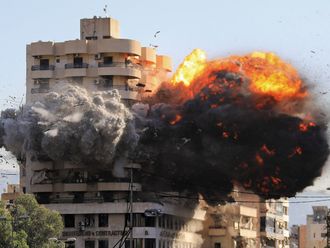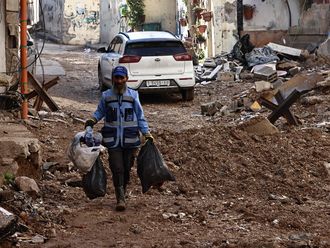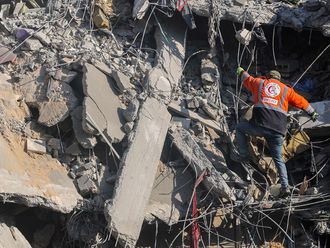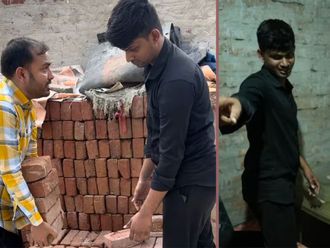On Turkey-Syria Border: There is much talk here of shadowy CIA men vetting rebel brigades’ suitability for US taxpayers’ largesse. Everyone seems to want a piece of that action, but how to get in on the game seems to baffle many.
“It’s all very foggy,” agreed Mahmoud Shaikh Al Zor, a slim, bespectacled former heavy-equipment salesman in Atlanta who gave up selling Caterpillars and returned to his homeland to fight. He, like others, came to Turkey seeking help for his battalion, known as the Brave.
In recent days, Al Zor said, he had been calling people in Washington and Istanbul and had just sent an email to a representative of Senator John McCain of Arizona, a hawk on arming Syrian rebels. No firm promises yet, he said.
The Islamist groups were sucking up all the oxygen, he complained. Al Zor, 52, called the recent weeks spent fighting in neighbouring Idlib province “the greatest days of my life.” Rummaging for aid is a less exhilarating enterprise. War, even its guerrilla incarnation across the border in Syria, is not a poor man’s game.
Rocket-propelled grenades, a rebel staple, sell for about $1,200 each on the black market. Al Zor recalled a recent battle in which 13 direct RPG hits failed to stop a Russian-made T-72 tank used by the Syrian military. That’s more than $15,000 wasted.
At a border village some kilometres away, Abu Abed, the mortar craftsman who goes by a nickname for security purposes, has been working on a homemade alternative to formal arms. For months, the guerrilla leader, who heads a rebel band in the nearby Syrian province of Latakia, has been fashioning weapons and bombs at a home in the Turkish hills less than a mile from the border.
Of the 35 men in his brigade, he said, only 11 have regular weapons. Two dozen comrades from Latakia have been killed or arrested, he said.
On the black market, he said, a Kalashnikov rifle can sell for at least $1,000 — more than five times the price tag a year ago. A bullet goes for more than $2.
Apart from homemade mortar launchers, Abu Abed specializes in roadside bombs, manufactured here with dynamite, black powder or plastic explosives or fertilizer - whatever is available on the black market. Abu Abed estimates that he has fashioned five tonnes of the materiel into bombs, some packed into blue gas cylinders.
As in Iraq, where roadside bombs were employed with lethal success against US forces, homemade explosives have curtailed the movements of Syrian troops, allowing “liberated” zones to enjoy some measure of safety, though the government has the upper hand in arms and equipment. “We’ve heard promises of weapons over and over,” Abu Abed said. “But we can’t keep dreaming they will come.”
—Los Angeles Times











